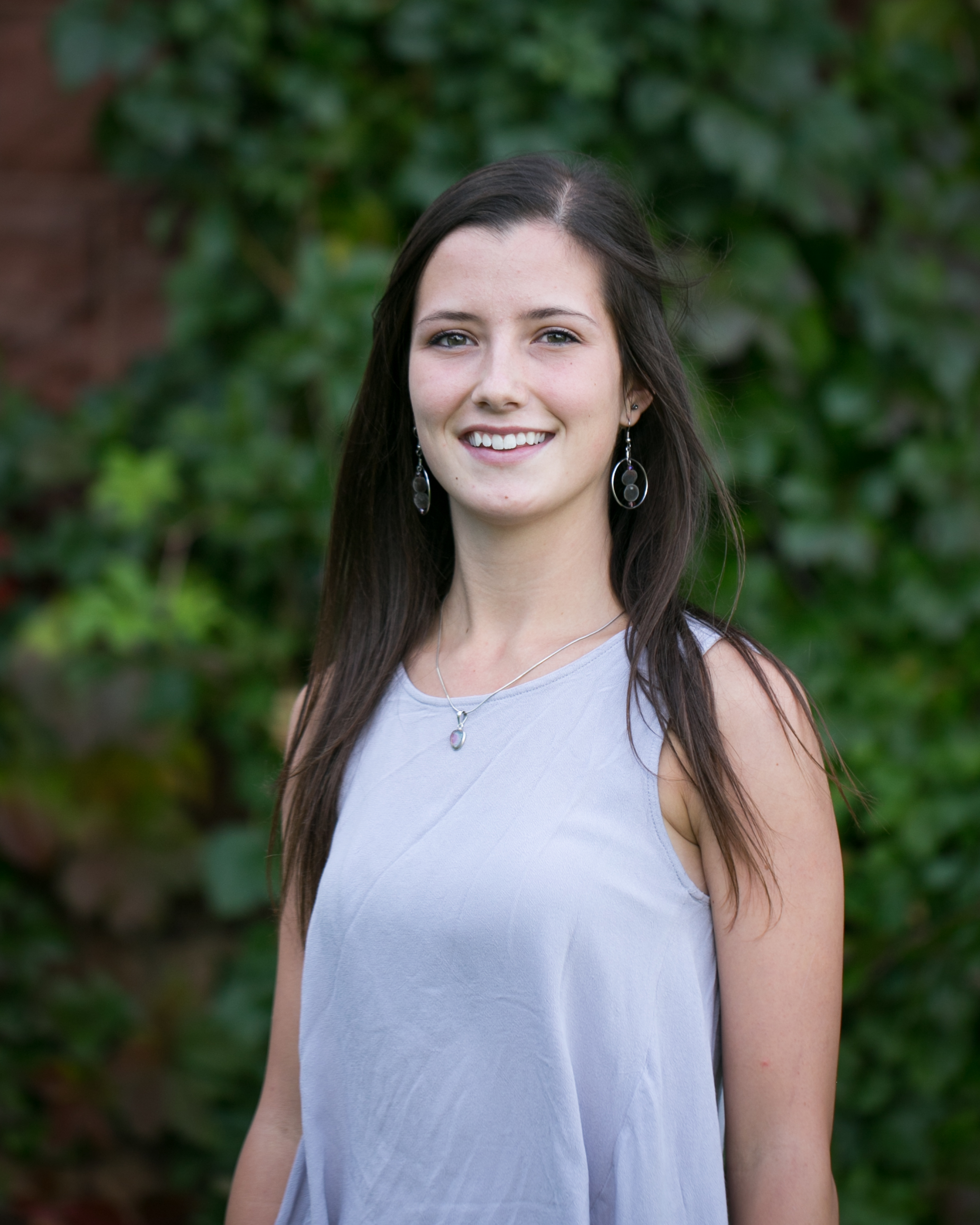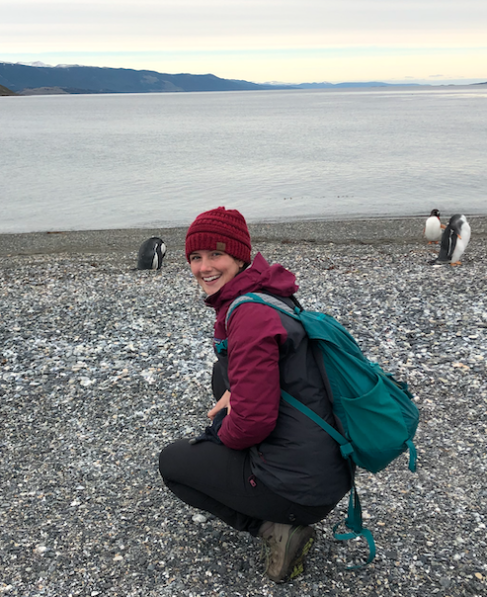Once considered wastelands, mangrove forests are among the most productive ecosystems in the world, providing critical social and ecological services for local and global ecosystems. But these forests are in danger of severe degradation, and first-year graduate student Jessica Archibald was selected for Graduate Research Fellowship Program (GRFP) from the National Science Foundation to fund her research on the human dimensions of mangrove restoration and pathways to scale up efforts to reverse degradation.
Archibald, a master’s student in the Environmental Science and Policy program, is one of six NAU students selected for the GRFP. The three-year program funds the fellows as they conduct research and work toward their degrees.
For Archibald, the fellowship means combining all her previous experiences in conservation and research to take on a social-ecological approach to restoring mangrove forests. These diverse, tropical and coastal forests are somewhat rare—only covering .2 percent of the world’s surface—but are incredibly important providers of wood fuel, recreation and intangible services like aesthetic appeal and spiritual values while adding a coastal buffer, minimizing erosion and pollutant assimilation. That is why their degradation—some reports estimate 30 to 50 percent global loss over the last 50 years—is so detrimental, making restoration efforts increasingly important.
Archibald got involved with a local nonprofit, Conservation Voters for Idaho, in high school and has been interested in conservation since then. She supported conservation in her home state through several grassroots campaigns addressing threats from mining and development initiatives in the Boulder-White Cloud Mountain range, which was close to Archibald’s hometown.
“Having the opportunity to unite people around the common cause of conservation fulfilled me, and I have been working with conservation ever since,” she said. “I learned that one of the most important parts of the grassroots conservation campaigns that we led was using the best available science to inform our work.”
It was her first exposure into how research could be used to promote more environmentally and socially just outcomes that pushed her toward a career working on social-environmental issues for conservation. She knew furthering her education was necessary to continue this path.
“As an economically disadvantaged first-generation student, this pursuit proved to be a gargantuan challenge,” Archibald said. “Nevertheless, I knew that college would enable me to step into the role of the socially and environmentally concerned scientist that I had first witnessed in my work during high school.”
The environmental studies program, small class size and biodiversity of northern Arizona drew Archibald to NAU for her undergraduate degree.
She studied abroad in Chile at Universidad de Concepción, and the next semester performed research in Ushuaia, Argentina studying invasive species and the social imaginaries of nature at the Centro Austral de Investigaciones Científicas.
Through her experience abroad, she was able to consider multiple aspects of environmental issues, shaping her desires to work in the international environmental science and policy arena.
Her experience with the natural sciences evolved from her work with the Ecological Restoration Institute. As an undergraduate research assistant, she collected and analyzed a wide variety of forest measurements, familiarizing herself with the complexities of restoration implementation and the difficulties of research development in the field. With that experience, she began an independent research project to analyze the impacts of projected climate changes for the Bebb willow in northern Arizona and prioritize populations for restoration.
Archibald also began working for the Community University Public Inquiry program, an undergraduate research initiative that focuses on community collaboration to address local socio-environmental issues.
She addressed research gaps regarding degraded water resources in the Colorado Plateau and equitable access to natural resources for marginalized communities. She also designed and implemented two independent research projects: The first focused on the potential for and social consequences of climate change-induced water scarcity in the region, while the second entailed a political-legal investigation of pathways to restitution and remediation for Indigenous communities who face contaminated and depleted water supplies due to industrial development.
These experiences allowed Archibald to combine natural and social sciences to conduct social-ecological research, the basis of her GRFP topic.
The GRFP
Though the application process was a lot of work and a lot of waiting, Archibald notes it was well worth it. She never thought she would be able to fund her own Ph.D., but the fellowship continues to open new doors for her.
With the increasing impacts climate change has on coastal communities and an abundance of tourism and coastal development, there is an amplified need to protect and restore mangroves, which help mitigate many of those impacts. However, failing to meet restoration objectives socially and ecologically happens often, usually because the efforts do not address the original cause of degradation, lack of community involvement and communication.
Archibald plans to research the human dimensions of mangrove restoration in the Mesoamerican Reef Ecoregion to find pathways to scale up mangrove restoration, improving the social and ecological outcomes of restoration and facilitating the development of networks for resource and knowledge sharing throughout the region.
Looking ahead
Archibald is transitioning into the Earth Science and Environmental Sustainability Ph.D. program with an emphasis in environment and society at NAU where she will continue to analyze mangrove restoration initiatives and networks to identify pathways for advancing these initiatives from the northern tip of Mexico’s Yucatán peninsula to the coast of northern Honduras. She plans to conduct 50 interviews in Spanish and English with managers, stakeholders and community members invested in mangrove restoration.
“To successfully conduct this research, connections to groups and communities are important,” she said. “My graduate adviser and committee members have established relationships with mangrove restoration projects occurring throughout my research site including in Mexico, Honduras and Belize. These connections will help facilitate working with these organizations and surrounding communities as well as allow for potential on-site visits.”
She hopes that her research will lay the groundwork for improved implementation of mangrove restoration techniques by building relationships and sharing knowledge and resources with stakeholder groups.
Six NAU students were selected for the National Science Foundation’s Graduate Research Fellowship Program. Read about their research.
Megan Gialluca: Dark matter amid the dark skies: In four years at NAU, research takes grad to the ends of the universe
Jonathan Chin: Building a better solar panel: NAU graduate wins NSF award to continue research into sustainable energy
Ethan Taber: Two years after Museum Fire, NAU grad student looks at what slow regeneration of fire site could mean for the future
McKenzie McLoughlin | NAU Communications
(928) 523-4789 | McKenzie.McLoughlin@nau.edu






